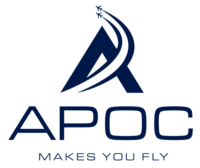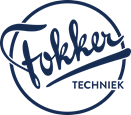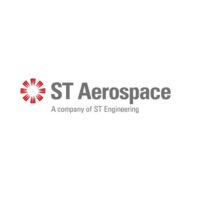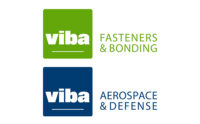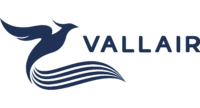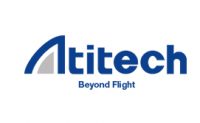Human Factors in MRO’s
This Human Factors training course is not only intended for maintenance engineers, but also for other functions directly or indirectly related to maintenance activities. We recommend Maintenance Management and Competent Aviation Authorities to participate in this training as well, so they can understand the organisational benefits of a good Human Factors Programme
Course information
Course Description:
This Human Factors course for Maintenance, Repair & Overhaul (MRO) organisations will ensure that the participants will be equipped with the necessary understanding and information related to everyday Human Factors issues. The learning objectives will be tested throughout the course by means of a multiple-choice examination and general feedback from the participants.
The training material will be delivered by an instructor who is a recognised “Subject Matter Expert” via PowerPoint presentations, using case studies, course exercises and interactive workshop element. The significant benefit of using a subject matter expert is that he is able to gain an understanding very quickly of the level of knowledge each participant has and therefore adjust his delivery style and delivery of topic depth for the audience in the room. He will also be able to draw upon his wealth of experience as an aircraft mechanic to explain via personal case studies related to human factors and human performance limitation issues.
Prior to the training, the students will receive an e-mail with a link to an online survey. By completing this survey (anonymously) we will receive feedback on the strengths and weaknesses of the students, the team he or she works in and the organisation he or she works with/for. This information is gathered to highlight specific topics during the course, so human factors awareness weaknesses can be improved. The results of the surveys will be incorporated in a fun, interactive and informative Human Factors Classroom Training Course with many interactive workshop elements.
Course Objectives:
The objective of this course is to improve the level of Human Factors awareness, recognizing Human Performance Limitations and understanding Human Performance issues related to activities in a Part 145 maintenance environment.
Learning objectives:
This classroom training course will provide the following:
Skills:
- recognizing, identifying and understanding human error and their causes
- dealing with errors and mistakes
- developing safety nets – identifying and recognizing “Norms”
- developing team skills
- developing good communication skills
Attitude:
- being aware of the human factors principles and theories
- being aware of individual differences and behavioural styles
- having the willingness to learn from your own mistakes and mistakes other people make.
Regulatory requirement compliance:
The course will be delivered within the context of and making reference to ICAO standards (Annex 6 Aircraft operations, maintenance) and the EU regulatory framework, European Commission Regulation (EU) No 1321/2014 annex I and II (Including recent amendments).
Prerequisites:
This Human Factors training course is not only intended for maintenance engineers, but also for other functions directly or indirectly related to maintenance activities. We recommend Maintenance Management and Competent Aviation Authorities to participate in this training as well, so they can understand the organisational benefits of a good Human Factors Programme
These persons should have a reasonable basic understanding of the applicable international and national regulations in advance of the training course. It is also expected they will have all held representative positions within the aviation industry, either with a NAA, operator, continuing airworthiness management organisation or maintenance organisation.
Course Topics
The syllabus contains of seven modules divided over two days.
Module 1 Introduction to Human Factors
- Background
- Regulatory requirements for HF
- History
- Statistics
- HF Models
Module 2 Human Error
- Human error and Maintenance error
- Rule breaking and violations
- Dirty Dozen
- Instructions and procedures
- Avoiding and Managing errors and violations (TEM and MEDA)
Module 3 Human Performance & Limitations
- Biological Factors
- Physical Factors
- Mental Factors
- Competence and knowledge
- Personality and attitude
- Environmental Factors
Module 4 Team
- Teamwork and team performance
- Norms
- Peer pressure
- Communication
- Conflict management
Module 5 Organisation
- Resource and planning Factors
- Fatigue Risk Management
- Competence, skills and training Factors
- Organisational Culture Factors
- Organisation’s Human Factors Programme (Part 145)
Module 6 Human Factors in Safety Management Systems (SMS)
- Safety Management Fundamentals
- The new “MANAGEMENT SYSTEM” focussed on Human Factors, Safety Risk and Fatigue Management
- Compliance monitoring functions
- Directive 2003/88/EC, ‘EU Working Time Directive’ or FRMS
- Reporting systems
Module 7 Workshop
- Explanation of the workshop
- Workshop
- Review results
- Analysis of work performed
Module 8 Examination
- 20 Multiple-choice Questions (result >75%)
Course Duration:
2 days (starting at 09:00 both days and ending at approximately 16:00).
Materials used
Required Materials:
There are no required materials applicable for this course.
Supplemental Materials:
There are no supplemental materials applicable for this course.
Hardware and Software requirements
Hardware requirements:
A reliable computer with internet connection is necessary to complete the online training.
Software requirements:
There is no software deemed necessary for this training.
Browser information:
A reliable computer with internet connection are necessary to complete the online training.
Instructor information
Instructor credentials:
Mr. Danny Goergen has over 10 years of experience in the aviation industry. After several years working as an aircraft mechanic, he graduated as Bachelor in Aviation Engineering and started as a process engineer in an EASA Part 145 approved component repair shop.
Within this organisation he had two EASA Form 4 positions as Technical Manager and Quality Assurance Manager. In this last position he developed himself as an internal trainer, providing training in EASA/FAA/CAAC Part 145 regulations, Human Factors and Company Processes an Procedures.
While working for this organization as a Quality Assurance Manager and qualified Human Factors trainer, he had the ambition to consult, support and provide training not only for his employer, but also to offer these services to other organizations in the aviation industry.
In October 2009, Danny Goergen founded Holland Aviation Consultancy & Engineering (HACE).
Besides providing consultancy and training services to the aviation industry, on behalf of HACE, he also founded an online training platform, that facilitates the several HACE online training courses, such as Human Factors, EWIS target group 1-6 and Fuel Tank Safety Training.
At the moment Mr. Danny Goergen is, on behalf of HACE, contracted in several interim quality management positions. Two of his clients are Part 147 approved Aviation Competence Centre (ACC, AMC66), where he holds the EASA form 4 position of Quality Assurance Manager. Besides managing the Part 147 quality system, he is also responsible for training their staff in EASA Part 66-147 regulations awareness and MTOE procedures.
Contact information:
Mr. Danny Goergen can be contacted via e-mail (danny.goergen@hace.aero)
Assessment and grading
Testing procedure:
Students will perform an (online) examination with Multiple-choice questions. A laptop or tablet with WiFi internet connection is needed to complete this examination.
Grading procedure:
This examination needs to be passed with a minimum passrate of 75% in order to receive a certificate of course completion.
Assignments and Participation
Assignments and Projects:
You are required to perform all the workshop assignments in order to complete this course.
Class Participation:
Students must communicate with other Students in the chatroom.
Students are expected to communicate with instructor as a learning resource.
Students are actively participating in discussions.
Course ground rules
Participation is required, expected to communicate with other students in team projects, learn how to navigate in the learning environment system, keep abreast of course announcements, use the student e-mail address opposed to a personal e-mail address. Address technical problems immediately and observe course netiquette at all times.






